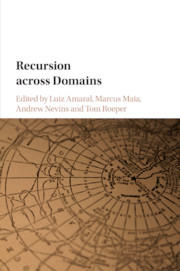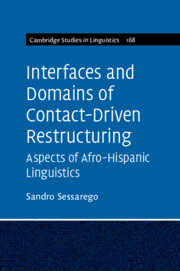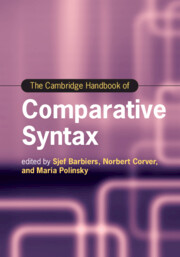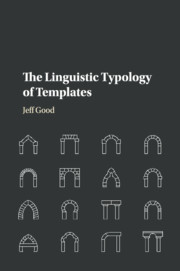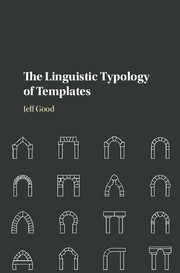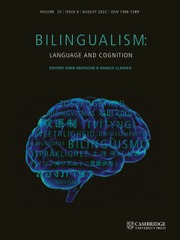Recursion across Domains
Recursion and self-embedding are at the heart of our ability to formulate our thoughts, articulate our imagination and share with other human beings. Nonetheless, controversy exists over the extent to which recursion is shared across all domains of syntax. A collection of 18 studies are presented here on the central linguistic property of recursion, examining a range of constructions in over a dozen languages representing great areal, typological and genetic diversity and spanning wide latitudes. The volume expands the topic to include prepositional phrases, possessives, adjectives, and relative clauses - our many vehicles to express creative thought - to provide a critical perspective on claims about how recursion connects to broader aspects of the mind. Parallel explorations across language families, literate and non-literate societies, children and adults are investigated and constitutes a new step in the generative tradition by simultaneously focusing on formal theory, acquisition and experimentation, and ecologically-sensitive fieldwork, and initiates a new community where these diverse experts collaborate.
- Presents data analyses of understudied languages using experimental methodologies, relevant to the new area of experimental field work
- Discusses embedding and conjoining in a range of grammatical constructions in several languages
- Presents sophisticated new acquisition and experimental techniques to capture complex syntax
Reviews & endorsements
'In the light of recent claims according to which syntactic recursion is the defining property of natural language, this volume offers an excellent collection of contributions dealing with the issue of how to detect and define recursion across syntactic domains and different languages. Since many chapters provide a comparison between languages that have been in the focus of recent debates on recursion and indigenous languages of Brazil, the book is a 'must read' for linguists interested in the issue of recursion from a typological perspective.' Andreas Trotzke, Universität Konstanz, Germany
Product details
No date availablePaperback
9781108406260
407 pages
150 × 230 × 20 mm
0.58kg
63 b/w illus. 1 map 19 tables
Table of Contents
- Introduction: a map of the theoretical and empirical issues Luiz Amaral, Marcus Maia, Andrew Nevins and Tom Roeper
- Part I. Speech Reports, Theory of Mind and Evidentials:
- 1. False speech reports in Pirahã: a comprehension experiment Uli Sauerland
- 2. Indirect recursion: the importance of second-order embedding and its implications for cross-linguistic research Bart Hollebrandse
- 3. Recursion in language and the development of higher order cognitive functions: an investigation with children acquiring Brazilian Portuguese Letícia M. S. Corrêa, Marina R. A. Augusto, Mercedes Marcilese and Clara Villarinho
- 4. Embedding as a building block of evidential categories in Kotiria Kristine Stenzel
- 5. Embedded imperatives in Mbyá Guillaume Thomas
- Part II. Recursion along the Clausal Spine:
- 6. Word order in control: evidence for self-embedding in Pirahã Cilene Rodrigues, Raiane Salles and Filomena Sandalo
- 7. Switch-reference is licensed by both kinds of coordination: novel Kĩsêdjê data Rafael Nonato
- 8. Clausal recursion, predicate raising and head-finality in Tenetehára Fábio Bonfim Duarte
- 9. Recursion in Tupi-Guarani languages: the cases of Tupinambá and Guarani Marcia Maria Damaso Vieira
- Part III. Recursive Possession and Relative Clauses:
- 10. Recursive possessives in child Japanese Akikio Terunuma and Terue Nakato
- 11. Recursion of possessives and locative phrases in Kawaiwete Suzi Lima and Pikuruk Kaiabi
- 12. Relative clauses in Wapichana and the interpretation of multiple embedded 'uraz' constructions Luiz Amaral and Wendy Leandro
- 13. Multiple embedding of relative clauses in Karitiana Luciana Storto, Karin Vivanco and Ivan Rocha
- Part IV. Recursion in the PP Domain:
- 14. Recursion in the acquisition path for hierarchical syntactic structure Tom Roeper and Yohei Oseki
- 15. Self-embedded recursive postpositional phrases in Pirahã: a pilot study Filomena Sandalo, Cilene Rodrigues, Tom Roeper, Luiz Amaral, Marcus Maia and Glauber Romling da Silva
- 16. Strong continuity and children's development of DP recursion Ana T. Pérez-Leroux, Anny Castilla-Earls, Susana Béjar, Diane Massam and Tyler Peterson
- 17. Prosody and recursion in Kuikuro: DPs vs PPs Bruna Franchetto
- 18. The processing of PP embedding and coordination in Karajá and in Portuguese Marcus Maia, Aniela França, Aline Gesualdi, Aleria Lage, Cristiane Oliveira, Marije Soto and Juliana Gomes.

